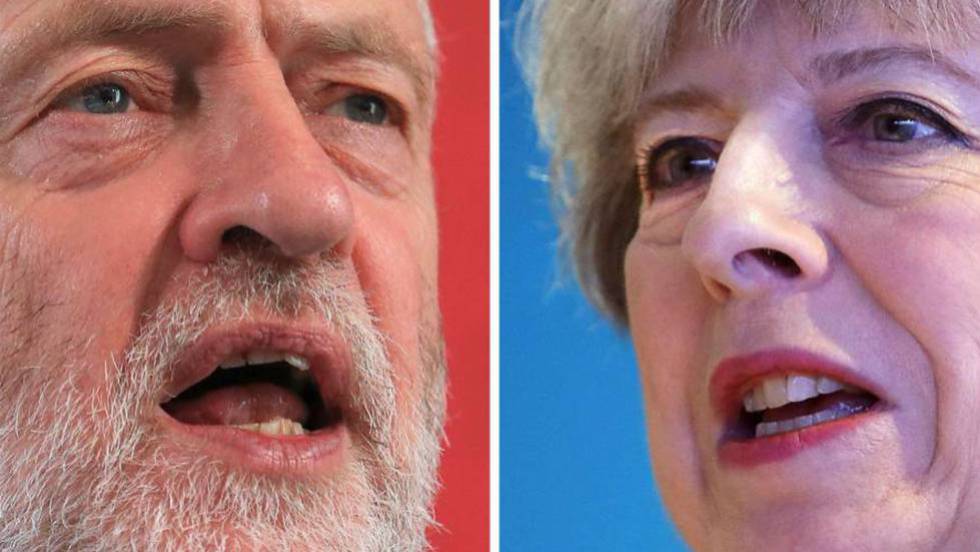UK Election Result May Lead to a More Democratic and Accountable Brexit
09 June 2017
Director, Chatham House
But continued antipathy towards immigration means free movement and membership of the single market remain off the table.
Theresa
May was chosen by the Conservative Party last autumn to be the safe
pair of hands that would navigate Britain through the difficult waters
of Brexit. She had called yesterday’s snap election to seek a popular
mandate to conduct the negotiation and to buy time to implement it
thereafter. She had laid out the broad outlines of the UK’s negotiating
position in her Lancaster House speech on 17 January and in her
letter on 29 March to European Council President Donald Tusk.
Having
made Brexit the rationale for the election, she nevertheless made no
effort during the campaign to explain how she would manage the
negotiation or what a successful deal would look like. Instead, she
tried to keep her powder dry for the start of the post-election
negotiations and simply emphasize her own competence, believing that the
true message of the referendum vote was the need to heal a divided
Britain.
This
might have seemed like a winning formula, as the early polls indicated.
Unfortunately for her, she presided over a disastrous misstep in
drafting the Conservative manifesto – alienating older supporters and
angering colleagues and party members with an unpopular proposal to
overhaul social care costs, branded a ‘dementia tax’. She also failed to
connect personally with many voters during the campaign. The terrorist
attacks did not strengthen the Conservative vote, as the Labour Party
turned attention to her role in overseeing police cuts.
In
the end, the Conservative Party has lost its outright majority,
and has had to rely on gains in Scotland to secure a working majority in
a hung parliament.The prime minister’s political standing has been
badly damaged. She has lost a key ally in Ben Gummer, who helped draft
the manifesto and would have played a critical role in the Brexit
negotiations. She will form a government with the support of the
Democratic Unionist Party (DUP) of Northern Ireland. But she now has to
turn her focus immediately back to the Brexit negotiations while
presiding over an angry and restive party and with serious doubts as to
whether she will lead the party into the next election, whenever it
takes place.
In
contrast, Jeremy Corbyn gave voice to public fears of another five
years of Conservative budget-cutting and austerity, and in Bernie
Sanders-style, channelled the passion of the young for a more hopeful
future. Where Theresa May surprised ‘on the downside’, he surprised ‘on
the upside’. He also offered a goody bag of highly popular electoral
bribes – such as nationalizing the railways and abolishing university
tuition fees – without worrying too much about how to deliver them.
Whereas May can point to the fact that she secured a larger share of the
vote (close to 43%) than Margaret Thatcher and Tony Blair in their best
elections, this is scant consolation when Corbyn has been able
to increase the Labour vote to 41% and repel the expected increase in
the Conservative parliamentary majority.
Where this leaves the UK and Brexit
A
key dynamic of the election is that the collapsing UKIP vote did not go
solidly to the Conservatives; rather, in seats like Hartlepool and
Newcastle, a large number went back to Labour. They did so not because voters had
second thoughts about Brexit, but because Jeremy Corbyn appeared
consistent and committed in his long-standing Euroscepticism (he was a
half-hearted Remainer during the campaign) and credible in his
statements that he would not go back on the referendum result. Passing
this test, he was able to turn the political agenda to other issues,
such as austerity and inequality.
The
result is that Britain’s two major parties once again dominate
politics, collectively representing some 85% of the vote on a near 70%
turnout. And both are formally committed to following through with
Brexit.
The
question, then, is not whether Brexit will now happen, but what sort of
a deal this election result might produce. The negotiations will
clearly be more difficult for Theresa May to manage domestically. Her
party still contains fierce Brexiteers, who will challenge every
concession. But the proportion of Conservative MPs who voted to Remain
and who want a pragmatic Brexit is higher than expected.
For his part, Corbyn will have to tread carefully too. This
morning, he stated his desire for a pragmatic outcome, saying Labour
will be looking for a ‘jobs first Brexit – which means a good trade
deal’. On the other hand, a larger number of Labour MPs now
represent constituencies which voted by large majorities to leave, and
whose voters could abandon Labour again if it changed course on Brexit.
The
net effect of these conflicting pressures is likely to be the search
for a pragmatic deal with the EU that can pass the threshold of a
significant majority across the whole Parliament and not just in
the Conservative Party. To be acceptable domestically, this deal must
minimize the economic risks inherent in Brexit and not put Parliament in
a position where it is forced to test Theresa May’s proposition
that ‘no deal is better than a bad deal’. If it came to such an outcome,
there is now a chance that Parliament would hand the deal back to the
electorate in a second referendum.
There
are some other considerations. This snap general election does not in
any way challenge the referendum vote, which was intensely debated over a
far longer period. Antipathy among a majority of Britons to
uncontrolled immigration has not receded. This means that there is still
no chance Prime Minister May will go back on her refusal to accept free
movement of labour from the EU. The Labour leadership also accept this
position. As a result, British membership of the single market remains
off the table.
The
final deal that the British side will seek, therefore, will aim
to combine the agreement to withdraw from the EU with some complex form
of enhanced free trade agreement. Deciding how to supervise this
agreement will be no easier than before. The Conservative Party in
particular will not accept the primacy of the European Court of
Justice (ECJ) over UK domestic legislation.
Agreeing
on the size of the UK's 'exit bill' will also remain contentious. But
the government may have more space to offer a preferential deal on
EU migrants coming into the UK to support key sectors, such as the NHS,
agriculture and the financial sector. And having the DUP guaranteeing
the government's operating majority means the UK will be under added
pressure to reach a compromise on border arrangements and regulatory
convergence which avoids a 'hard border' with the Irish Republic -
although the DUP may well oppose a special arrangement in Northern
Ireland if it is seen to undermine its place in the Union.
Possible EU27 responses
This
raises the question of how the EU27 will now approach the negotiations.
The Article 50 clock continues to count down to 29 March 2019, and
there is deep frustration in Brussels and EU capitals that so much time
has been lost for what is now so little reason. They will worry about
the ability of a weak UK government to manage domestic compromises on
key issues and feel their position in negotiations, in which they
already have the upper hand, has only been strengthened.
In
the meantime, the EU has moved on. Emmanuel Macron's election in France
along with the prospects of Brexit have given new energy and optimism
to the prospects for deepening EU and eurozone integration across a
range of policy areas. With this renewed confidence, the EU27 could
choose to play hardball with the UK on the budget or the future rights
of EU citizens wanting to work in the EU.
Hopefully
they won't. Not even a weakened Theresa May could accept
EU extra-territorial jurisdiction over EU citizens living in the
country. And there is nothing to be gained now from pushing a wounded UK
and weakened Theresa May into the corner. The EU27 are as keen to move
on beyond Brexit as are the Brits. A failed Brexit negotiation is no
more in the EU27’s interest than it is in the UK’s. And tying up the
withdrawal agreement by the end of March 2019, as scheduled, will allow
the European Parliament elections in May 2019 to go ahead without the
severe complication of the UK as a member.
The
most difficult political question for the EU27 is how to ensure that
the UK pays some form of cost for leaving, such that its position
outside the EU is less advantageous than being a member was. Theresa May
says she has already accepted to pay the cost. By choosing not to be a
member of the Single Market, the UK will lose influence over the rules
by which British exports of goods and services gain access to their
major market. This will increase the regulatory burdens for UK-based
businesses and have negative knock-on effects for foreign investment.
The
recent British tensions with the European Commission, evident in the
May-Juncker dinner on 26 April, imply that the EU27 did not believe this
was a sufficient cost. Constant EU carping that the Brits are
insufficiently prepared for the negotiation masks a deeper fear that,
outside the jurisdiction of the ECJ, the UK might yet find a way to make
a success of Brexit at the EU's expense.
But,
just one month after that dinner, the EU is in a far stronger position
economically and politically. Perhaps it can afford to let the UK pay
the price of Brexit over time rather than up front, without risking
damage to its own future cohesion.
If
so, Theresa May could yet carve a path for Britain from a botched
election to a Brexit outcome that reflects as well as possible the
contradictory aspirations of the British electorate.



